Executive summary
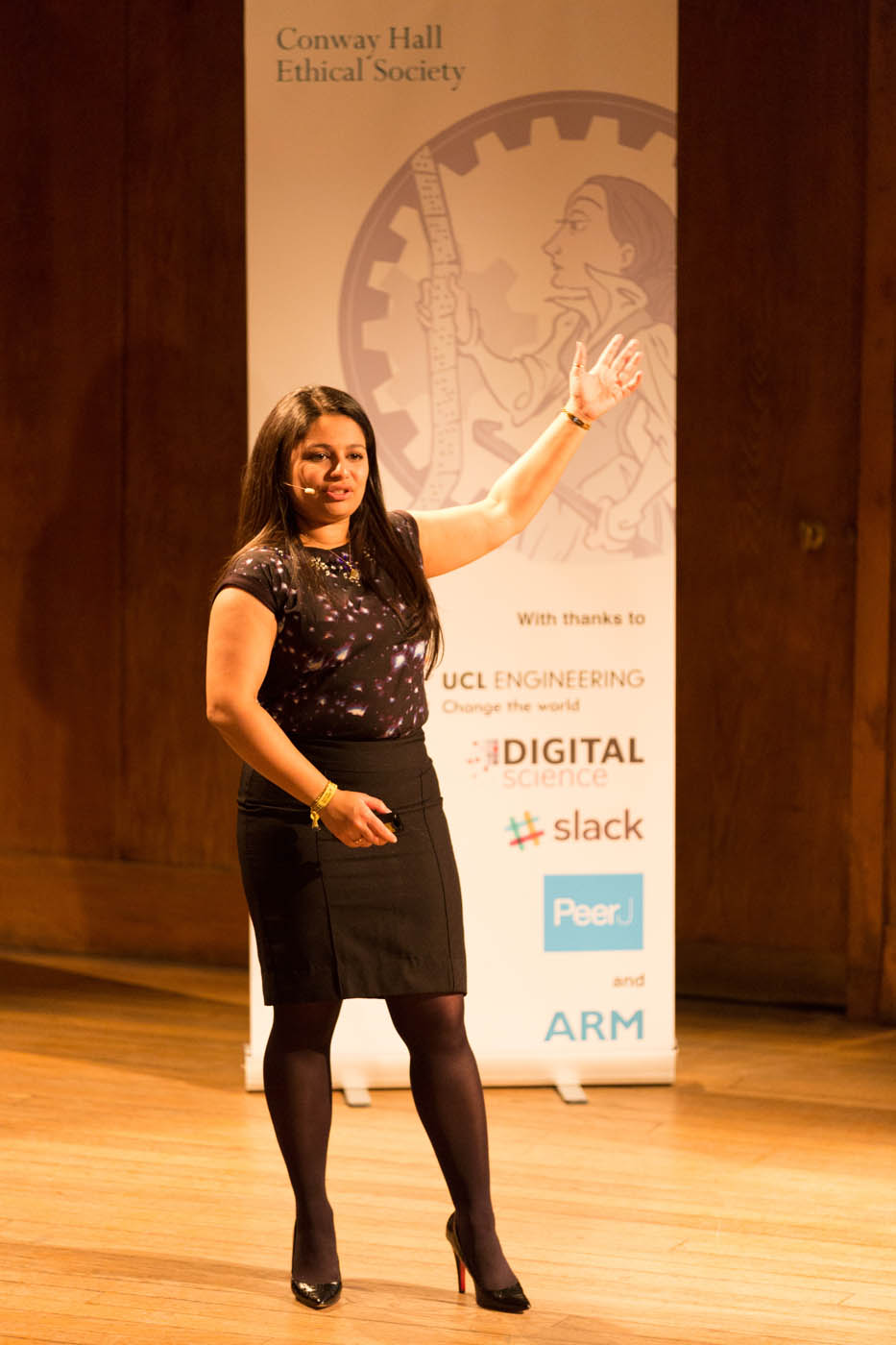
Dr Suze Kundu
Ada Lovelace Day, the international celebration of the achievements of women in science, technology, engineering and maths, marked its eighth year and Ada Lovelace’s bicentenary in 2015. The year was a pivotal one, as a multi-year sponsorship deal with ARM meant that ALD’s founder, Suw Charman-Anderson could transition to working full time on expanding our activities.
Held on 13 October, Ada Lovelace Day this year was the biggest to date. Our ‘science cabaret’, Ada Lovelace Day Live! was a huge success, and we packed out our host venue, Conway Hall, with a diverse and appreciative audience. Around the world, there were over 150 independently organised Ada Lovelace Day events, in 82 cities, in 25 countries, with one on every continent.
With the support of ARM, we developed and released a free education pack for teachers of 11-14 year olds. Our aim is to help teachers tackle the gender stereotypes that hold both girls and boys back, and especially to address girls’ relationship to and confidence with STEM subjects.
We released our second anthology of essays about women in STEM, More Passion for Science: Journeys in the Unknown. Written by authors from around the world, it features a wide variety of stories describing many perilous and brave journeys into the unknown, some metaphorical, many real. We also re-released our first anthology, A Passion for Science: Stories of Discovery and Invention, with three new chapters.
We also launched a line of merchandise, including posters, spiralbound notebooks and hardbacked journals. Our first design featured Ada Lovelace, and the second tells the story of palaeontologist Mary Anning, who discovered the first plesiosaur.
This year, 2016, will see us develop the resources database for women in STEM, for which we received the Digital Science Catalyst Award. We will also be launching a new podcast, highlighting the work of women in STEM.
We will focus too on growing our community and better promoting our existing work, as well as developing a new governance structure to ensure that we have the flexibility we will need as we develop and expand our activities. And, like all small organisations, we will be working to expand our sponsorship base and will launch some new fundraising initiatives.
Introduction
Ada Lovelace Day is an international celebration of the achievements of women in science, technology, engineering and maths (STEM). It aims to increase the profile of women in STEM and, in doing so, create new role models who will encourage more girls into STEM careers and support women already working in STEM.
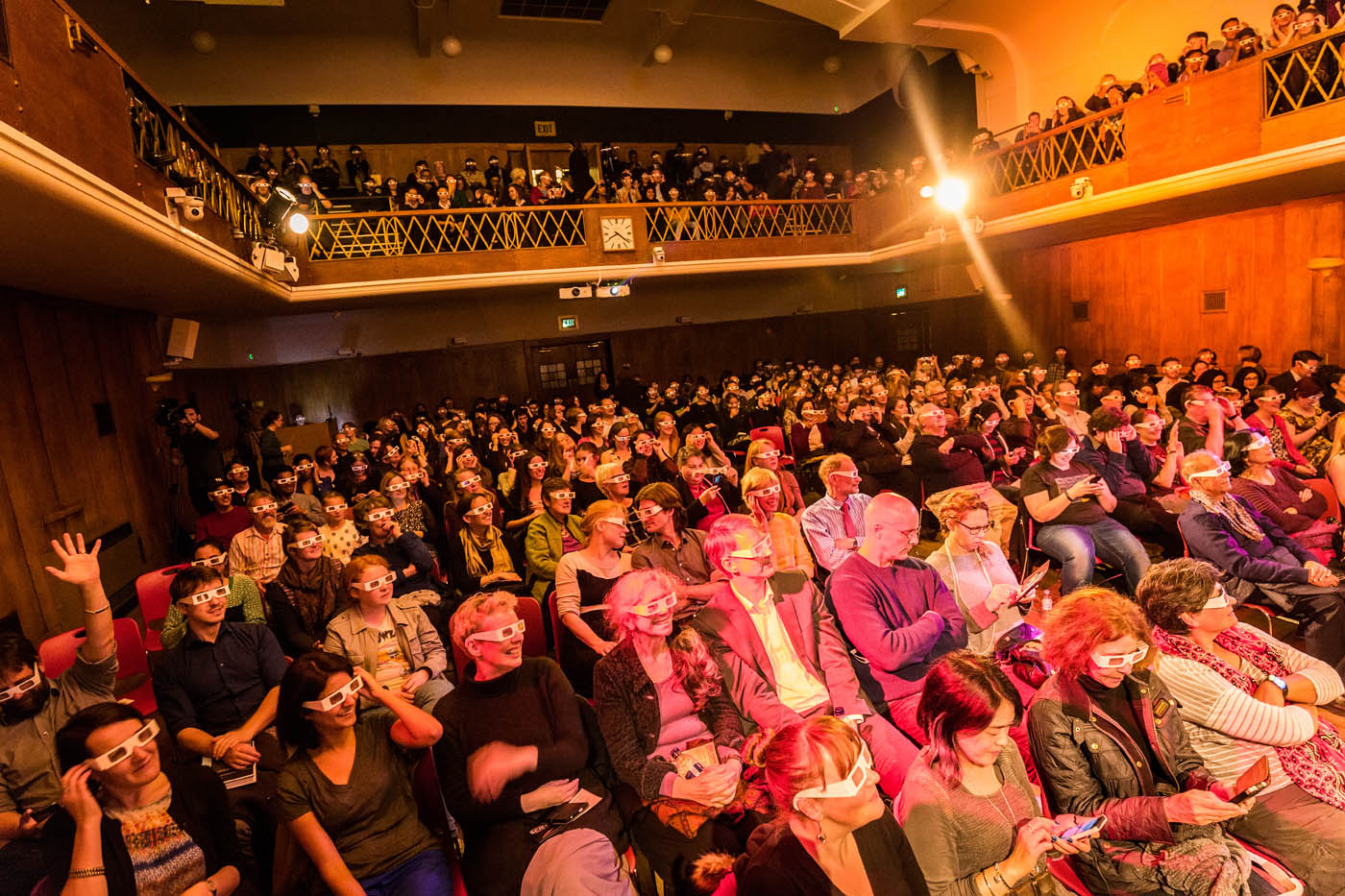 Founded in 2009 by Suw Charman-Anderson, it is now held every year on the second Tuesday of October. It features our flagship Ada Lovelace Day Live! ‘science cabaret’ event in London, UK, at which women in STEM give short talks about their work or about other women who have inspired them, or perform short comedy or musical interludes with a STEM focus. Dozens of other events, large and small, organised entirely independently from our main London event, are also held on the day itself and throughout October.
Founded in 2009 by Suw Charman-Anderson, it is now held every year on the second Tuesday of October. It features our flagship Ada Lovelace Day Live! ‘science cabaret’ event in London, UK, at which women in STEM give short talks about their work or about other women who have inspired them, or perform short comedy or musical interludes with a STEM focus. Dozens of other events, large and small, organised entirely independently from our main London event, are also held on the day itself and throughout October.
In this report, we will review the work we did in 2015, outline the projects we are committed to for 2016, examine the challenges we face as we grow our work, organisation and community, and explore the fantastic new opportunities ahead of us.
Women in STEM
Ada Lovelace Day was founded because social and cultural pressures turn many girls away from STEM, and prevent many women from discovering, pursuing and succeeding in STEM careers. And those who do enter STEM fields face significant challenges because of their gender. Studies show that:
In the UK, 47 percent of the workforce are women [1], but women account for only 14 percent of the STEM workforce [2].
- 18 percent of IT professionals are women [2].
- 8 percent of engineers are women [2].
- 20 percent of physics A-Levels are taken by girls, a number that hasn’t changed for 20 years [3].
- 13 percent of computer science students were female in 2014, compared to 14 percent in 2010 [4].
Yet, businesses with women on their board of directors perform better than those with none, and “unleashing women’s full potential could be worth £23 billion a year to the Exchequer” [1].
There is no doubt that women are underrepresented in STEM, and that both business and society are losing out as a result. Furthermore, women are losing out on enjoyable, fulfilling and lucrative careers: Evidence shows that girls and women are capable, achieving higher grades than boys at A-Level in physics, for example. Indeed, they outperform boys in STEM qualifications at all levels, and outnumber boys in degrees such as medicine and veterinary science, accounting for 60 percent of all medicine undergraduates and 75 percent of veterinary science undergraduates [5].
2015: A pivotal year for Ada Lovelace Day
Last year, 2015, was a pivotal year for Ada Lovelace Day. Thanks to support from ARM, our founder, Suw Charman-Anderson, was able to begin working full-time on expanding Ada Lovelace Day’s activities and explore different ways in which to pursue our goals.
Since our launch in 2009, we have grown every year, in reach, impact, scope and breadth of activities. But 2015 saw explosive growth, due primarily to Charman-Anderson being able to devote much more time and resources to organising not just the day itself, but additional projects. Whereas in 2013 there were only 44 independent events, by 2014 this had grown to 65 and last year saw over 150 globally.
In addition to our flagship event, we also produced an education pack, published a new book about women in STEM, launched a range of merchandise, and began developing a resources database.
Ada Lovelace Day
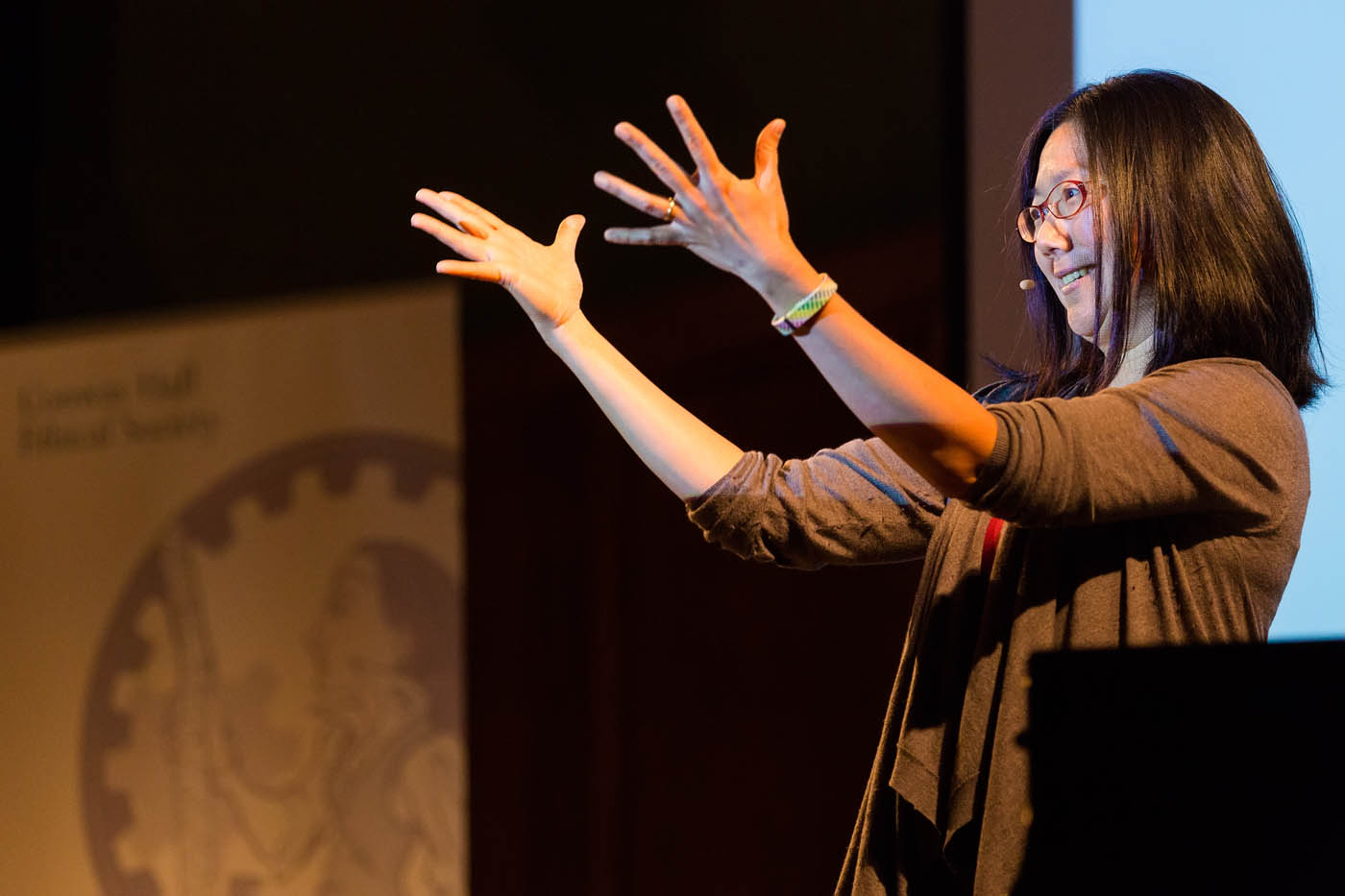
Professor Elaine Chew
Our primary focus remains Ada Lovelace Day, an international celebration of the achievements of women in STEM which this year was held on 13 October. Attention was far greater than usual because of Lovelace’s bicentenary on 10 December, which provided a great hook for getting more people and organisations involved.
Ada Lovelace Day Live!
Ada Lovelace Day Live!, our annual science cabaret event, is an unusual event in the London calendar, as it features only women speakers currently working in STEM fields and creates an entertaining backdrop for them to talk about their work. Comedian Helen Arney has been our compère since 2011 and she again reprised her role, setting the tone for a fun and illuminating evening.
Our speakers were:
-
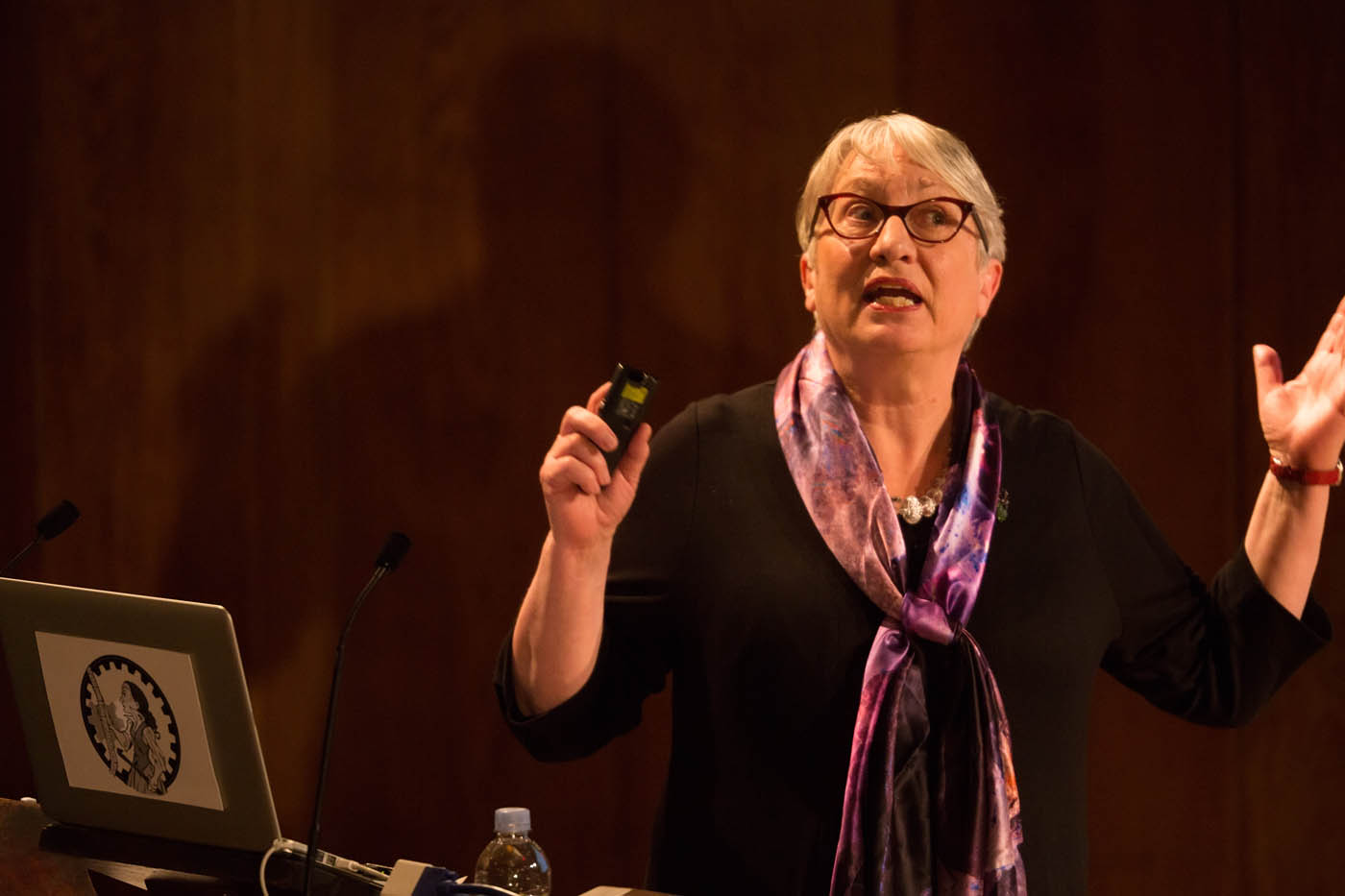
Professor Uta Frith
Abigail Hutty, senior spacecraft structures engineer on Airbus’ ExoMars Rover Project.
- Dr Jen Gupta, astrophysicist and science communicator based in the Institute of Cosmology and Gravitation at the University of Portsmouth.
- Dr Sujata Kundu, nanochemist focused on materials that can capture solar energy at the Department of Materials at Imperial College London.
- Professor Elaine Chew, classically trained pianist and operations researcher who models and visualises music, based at Queen Mary University of London.
- Professor Uta Frith, Emeritus Professor of Cognitive Development at UCL, best known for her work on autism and dyslexia.
- Lucy Haken, science television producer/director and series producer for 2015’s Royal Institution Christmas Lectures, ‘How to Survive in Space’.
- Suw Charman-Anderson, founder of Ada Lovelace Day.
- Helen Arney, compère and comedian who writes maths and science-inspired comedy songs and performs across the UK as herself and with “Festival of the Spoken Nerd”.
Videos of the talks are available on YouTube and photos of the evening are on Flickr.
Ada Lovelace Day Live! 2015 was held in front of a packed house at Conway Hall in London. Our audience ranged in age from children over 12 years old through to retirees, which included people who have not yet taken exams through the educational spectrum to professional and professors, and is well-balanced in terms of gender and ethnicity.
We were delighted that Slack, the team communications tool, sponsored 75 free tickets for schools and individuals who would not otherwise be able to attend. This new initiative to ensure that cost is not a barrier for school groups and individuals was hugely successful and one we hope to not only repeat but expand upon this year.
Worldwide events
Every year, independent groups organise their own Ada Lovelace Day events to celebrate and support women in STEM. In 2015, we had over 150 independently organised Ada Lovelace Day events around the world, in 82 cities, in 25 countries, with at least one on every one of the seven major continents, including Antarctica. That’s more than double the 65 events we saw in 2014.

University of East London’s cake, photo Nick Luft
Although the majority of events took place in the UK and North America, we also saw events across Europe, as well as in Albania, Australia, Brazil, the Czech Republic, Israel, Lithuania, Nepal, New Zealand, Nigeria, Serbia, Slovenia, Tunisia, Turkey and Ukraine. Event types varied widely, from museum exhibitions to hackathons, lectures, Wikpedia editathons and cream teas.
Organisers included individuals, museums, schools, universities, women in STEM groups, businesses, theatres, libraries and even a town visitor centre.
In order to support and encourage independent organisers, we created an information pack which included information about the day, inspiration for event formats, and resources such as blanks for flyers and posters. The full pack, including all resources, was downloaded 100 times, and the organiser’s handbook was downloaded 90 times.
Press coverage
Yet again, Ada Lovelace Day was embraced by the media, and we had some great coverage, with journalists both explaining the day and taking part by highlighting women in STEM. A few highlights from this year’s coverage:
- Motherboard: Ada Lovelace Was the First Person to Understand the Real Potential of Computers
- BBC, Business Daily: Ada Lovelace Day
- Tech.Mic: Today Is Ada Lovelace Day, Honoring the World’s First Computer Programmer, Born in 1815
- The Guardian: Why Ada Lovelace Day matters
- RadioTimes: Who is Ada Lovelace? And why is she trending on Twitter?
- Elle UK: Woman Of The Week: Ada Lovelace
Website development
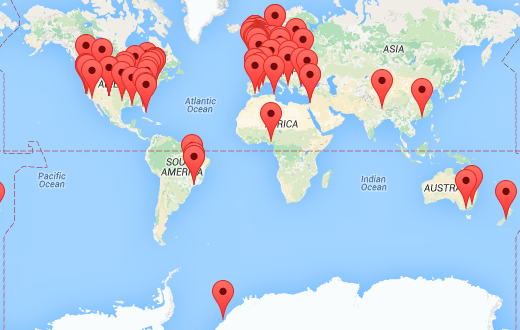 The huge response to Ada Lovelace Day from independent event organisers that we had in the run up to the day meant that we had to put a new events calendar in place to cope with the volume of submissions. This work was funded by a grant from Digital Science, who named us as co-winners of the 2015 Catalyst Award.
The huge response to Ada Lovelace Day from independent event organisers that we had in the run up to the day meant that we had to put a new events calendar in place to cope with the volume of submissions. This work was funded by a grant from Digital Science, who named us as co-winners of the 2015 Catalyst Award.
Events organisers can now add their own events to our website, and supporters can find out what’s on near them. The new events calendar is fully searchable, as well as providing users with map, list and calendar views. It not only makes life easier for events organisers and ALD supporters, however, it also dramatically cuts down the overheads of managing the independent events listings, which used to be produced manually.
The FindingAda.com website also underwent a redesign this year, with a new theme and navigation, and a new community forum where ALD supporters can talk about women in STEM, equality and diversity and many other topics. Redeveloping any website is, of course, an ongoing project, and we’ve a lot more up our sleeves for 2016.
The Funding Gap
Ada Lovelace Day Live! was not the only event that we organised in 2015. In June, Conway Hall hosted The Funding Gap, a meeting of around 20 people concerned about the lack of funding for groups that support women in STEM. Bringing together organisers, philanthropists and business leaders, the meeting was an opportunity to discuss the state of play and potential solutions.
This is an area where much more work is needed. For many years, we’ve heard about how the number of girls and women studying and taking up careers in STEM is woefully low. And many grassroots and industry-focused groups are working incredibly hard to support, inspire and celebrate women in STEM. But despite their success, they all lack funding. In 2016, we will be looking for opportunities to address this issue again and to drive the conversation forwards.
Education pack
 With the support of ARM, we developed and released a free education pack for teachers of 11-14 year olds, ie Key Stage 3 in the UK or US Grades 6-8. The pack is free to download, print, use and share.
With the support of ARM, we developed and released a free education pack for teachers of 11-14 year olds, ie Key Stage 3 in the UK or US Grades 6-8. The pack is free to download, print, use and share.
Our aim is to help teachers tackle the gender stereotypes that hold both girls and boys back, and to particularly address girls’ relationship to and confidence with STEM subjects. The pack contents are available to read online, or as downloadable PDFs to print for the classroom.
The pack includes:
- Notes for Teachers: A look at the key issues facing girls and an exploration of the permanent changes we can make to help encourage girls into STEM.
- Introduction to Teaching Scenarios: An overview of how scenarios can be used as the basis for lesson plan and projects.
- Teaching Scenario 1: The Ultrobot: Students are encouraged to explore questions around how gender is used as a marketing tool, how colour-coding toys (and other items) as ‘for boys’ or ‘for girls’ limits children’s opportunities.
- Teaching Scenario 2: The Recruitment Fair: Students are asked to consider how language can influence their perceptions about which jobs are ‘for men’ or ‘for women’, and thus which jobs they can imagine themselves doing, and how job descriptions can be written to be more inclusive.
- Teaching Scenario 3: The Charitable Trust: Students are encouraged to think about the ways in which STEM makes a positive difference to our lives, how there is a very broad spectrum of opportunities in STEM, and that STEM careers are not reserved just for the ‘super-geniuses’ or ‘brainiacs’.
- Useful Resources: A list of online resources for teachers and parents.
- Posters:
- The Amazingly Enormous Careers Poster: How many different careers become available to graduates of STEM degrees? This poster drives home the point that STEM opens doors.
- Ada Lovelace poster: Who was Ada Lovelace? What were her greatest achievements? A free downloadable version of our Ada Lovelace poster.
- Ten Types of Scientist poster: Based on research by the Science Council, this poster outlines 10 different types of career in science.
Resources and merchandise
Books
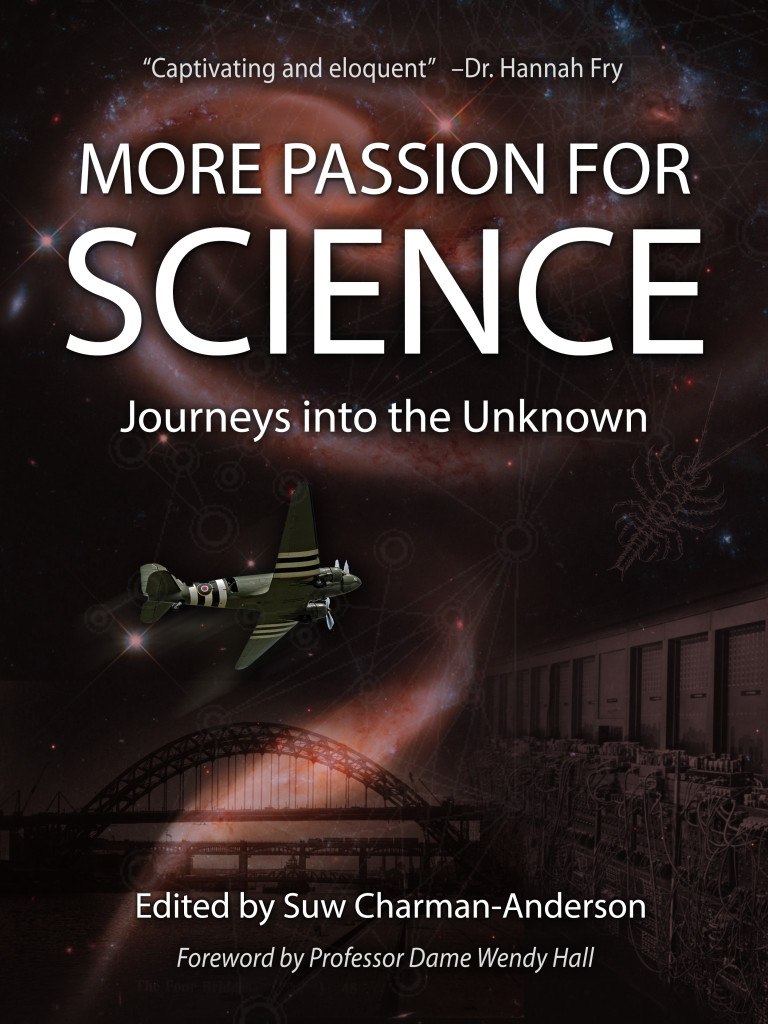 A core part of our mission is to tell the stories of women in STEM, and one way to do that is through the collection of short biographies about women in STEM, both famous and unknown.
A core part of our mission is to tell the stories of women in STEM, and one way to do that is through the collection of short biographies about women in STEM, both famous and unknown.
In 2015, we released our second anthology of essays, More Passion for Science: Journeys in the Unknown, which is now available as an ebook on Amazon for £1.99. With 23 chapters written by authors from around the world, it features a wide variety of stories describing many perilous and brave journeys in to the unknown, some metaphorical, many real.
The book features chapters on the female science writers from the 19th century, including Isabella Bird Bishop who travelled the world and became famous for her detailed descriptions of the culture, geography, flora and fauna of the countries she explored; the women of the UK’s Air Transport Auxiliary, who flew planes from airbase to airbase under testing and dangerous conditions; and Florence Nightingale, who was not just a nurse but a campaigning statistician who invented the polar area graph and was also the first to use infographics to campaign for public health changes.
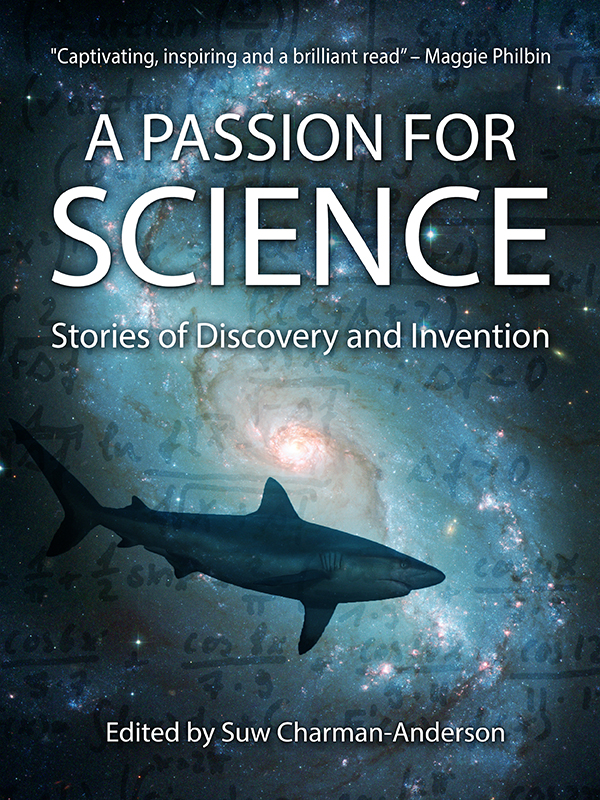 We also re-released our first anthology, A Passion for Science: Stories of Discovery and Invention, with three new chapters about Stephanie Kwolek, the inventor of Kevlar, breast cancer researcher and campaigner Vera Peters, and inventor Hertha Marks Ayrton. These chapters complement the stories of women such as Eugenie Clark, pioneering marine biologist and scuba diver who studied sharks; Scottish astronomer Williamina Flemming who discovered the horsehead nebula; and Joan Feynman, who groundbreaking work on the behaviour of high-energy particles in space is still used across the world today by the satellite industry.
We also re-released our first anthology, A Passion for Science: Stories of Discovery and Invention, with three new chapters about Stephanie Kwolek, the inventor of Kevlar, breast cancer researcher and campaigner Vera Peters, and inventor Hertha Marks Ayrton. These chapters complement the stories of women such as Eugenie Clark, pioneering marine biologist and scuba diver who studied sharks; Scottish astronomer Williamina Flemming who discovered the horsehead nebula; and Joan Feynman, who groundbreaking work on the behaviour of high-energy particles in space is still used across the world today by the satellite industry.
Now with 20 chapters exploring a wide variety of stories from science, engineering, computing and mathematics, A Passion for Science can only build on the popularity it has enjoyed since its first release in 2013.
I’m very grateful to all our authors, mentors and editorial volunteers who have made these books possible, and look forward to starting work on the next anthology!
Posters and stationery
 Whilst the majority of our funding comes from our sponsors, it’s important to diversify income streams and to that end we started a line of merchandise, including posters, spiralbound notebooks and hardbacked journals. We are currently selling through the print-on-demand service RedBubble, and launched with our Ada Lovelace ‘infoposter’, which is also included as a download in the Education Pack.
Whilst the majority of our funding comes from our sponsors, it’s important to diversify income streams and to that end we started a line of merchandise, including posters, spiralbound notebooks and hardbacked journals. We are currently selling through the print-on-demand service RedBubble, and launched with our Ada Lovelace ‘infoposter’, which is also included as a download in the Education Pack.
Our second design features palaeontologist Mary Anning, who discovered the first plesiosaur, as well as ichthyosaurs, the first pterodactyl outside of Germany and several fish. Her work was crucial to the development of palaeontology as a science, providing, as she did, “nearly all the fine specimens of Ichthyosauri of the great collections”.
We hope to further expand our merchandise line throughout the next year.
Talks, events and presentations
Our increased funding has also allowed founder Suw Charman-Anderson to give more talks around the UK and attend more events about women in STEM. In 2015, she spoke at or participated in the following events:
- Winfield House Dialogue on women in STEM at the residence of the American Ambassador Matthew Barzun.
- Southampton University, Campbell Lecture.
- Launch of UNICEF’s Wearables for Good campaign.
- Newcastle Skeptics in the Pub.
- ARM lecture.
- Sheffield Skeptics in the Pub.
- O’Reilly Media’s FooCamp.
- Birmingham Skeptics in the Pub.
- Science Museum Ada Lovelace Exhibition opening.
- Racepoint’s Reaching the Untapped Innovators.
- University of Nottingham, Ada Lovelace Celebration.
- University of Oxford, Somerville College, Ada Lovelace Bicentenary.
- Cancer Research UK lectureUniversity of Oxford, Ada Lovelace Symposium.
Projects for 2016
Resources Database
In February 2015, we launched our Patreon project, where we ask Ada Lovelace Day supporters to donate a small amount each month to fund our work. The project was focused on the development of a resources section on our website which provides details of groups and organisations that support or celebrate women in STEM. Later in the year, we were co-winners of the Digital Science’s Catalyst Award, which was partially used to add our events calendar, but also earmarked to develop a searchable resources database for women in STEM.
We will in the first half of 2016 create a global database of information that women can use to develop their STEM careers. Including data on organisations for women in STEM, grants, scholarships, fellowships, research and media coverage, it will help women at all stages of their career to find the support, funding and inspiration they need, and help businesses understand more clearly the challenges faced by women STEM.
Ada Lovelace Day Podcast
Podcasting is a growing medium, and last year was a breakout year. Increasing use of podcasts on mobile devices, including those connected to car entertainment systems, coupled with wildly successful podcast series such as NPR’s Serial has energised a medium once thought to be moribund. We hope to take advantage of this trend by starting a new podcast discussing with women their work in STEM. We hope to launch this new podcast in the first quarter of 2016.
Challenges for 2016
Like all organisations, large and small, we face some challenges as we grow. Here we briefly outline some of our priorities for 2016.
Community and promotion
We have grown our Twitter following this year to nearly 6,500, and our mailing list has over 1,000 subscribers. Whilst these numbers are healthy for a small organisation like ours, it is important that we continue to grow our community. We will achieve this by using Twitter and other social media tools more strategically, focusing on creating more visual, shareable Tweets that we hope will bring our work to the attention of a wider audience. We will also be focusing on promoting our education pack to teachers on sites such as LinkedIn, and exploring new avenues for promoting our two books and merchandise.
Governance
Ada Lovelace Day is currently run via a British limited company. We are in the process of recruiting an advisory board to help us develop and transition to a new governance structure that will be better suited to supporting our future growth. This new governance structure must be appropriate not just for our current size, it must also provide the flexibility we will need as we develop and expand our activities. We already publish a transparency statement about governance, finance and operations and will continue to keep our community informed as this changes.
Funding
Like all small organisations, finding new and reliable sources of funding is crucial to our success. We have been supported by some fantastic businesses and organisations over the last few years, mostly through sponsorship. Such support is essential, and it is our sponsors who keep the lights on. During 2016, we will be working to not just expand our sponsors, but also to launch some new fundraising initiatives which we hope will provide more long-term support for our work.
Thanks to our partners, sponsors and supporters
We are very grateful to our sponsors and partners over the last few years who have helped us to turn Ada Lovelace Day into a truly global event and to expand our work and reach. We would like to thank ARM and the Royal Astronomical Society for their support of Ada Lovelace Day in 2016, as well as Conway Hall, ARM, UCL Engineering, Digital Science, Slack, PeerJ, Meromorf Press, Present Indicative, FutureGov, Nationwide, SparkFun and WPEngine for their support of Ada Lovelace Day 2015, and the Royal Institution of Great Britain, ARM, GitHub, Nokia Lumia, Adafruit, Digital Science, Kindred, PS Computer Services Ltd, the Journal of Zoology, and Chris Luke for their support of Ada Lovelace Day 2014.
If you would like to become a sponsor in 2016, please take a look at our sponsorship prospectus online.
We are also very grateful to our Patreon supporters, who by the end of 2015 were donating a total of nearly $140/£100 per month. Whilst this is a modest amount, we value every penny and hope to attract many more supporters over the next year.
If you would like to become a donor, please take a look at our Patreon page.
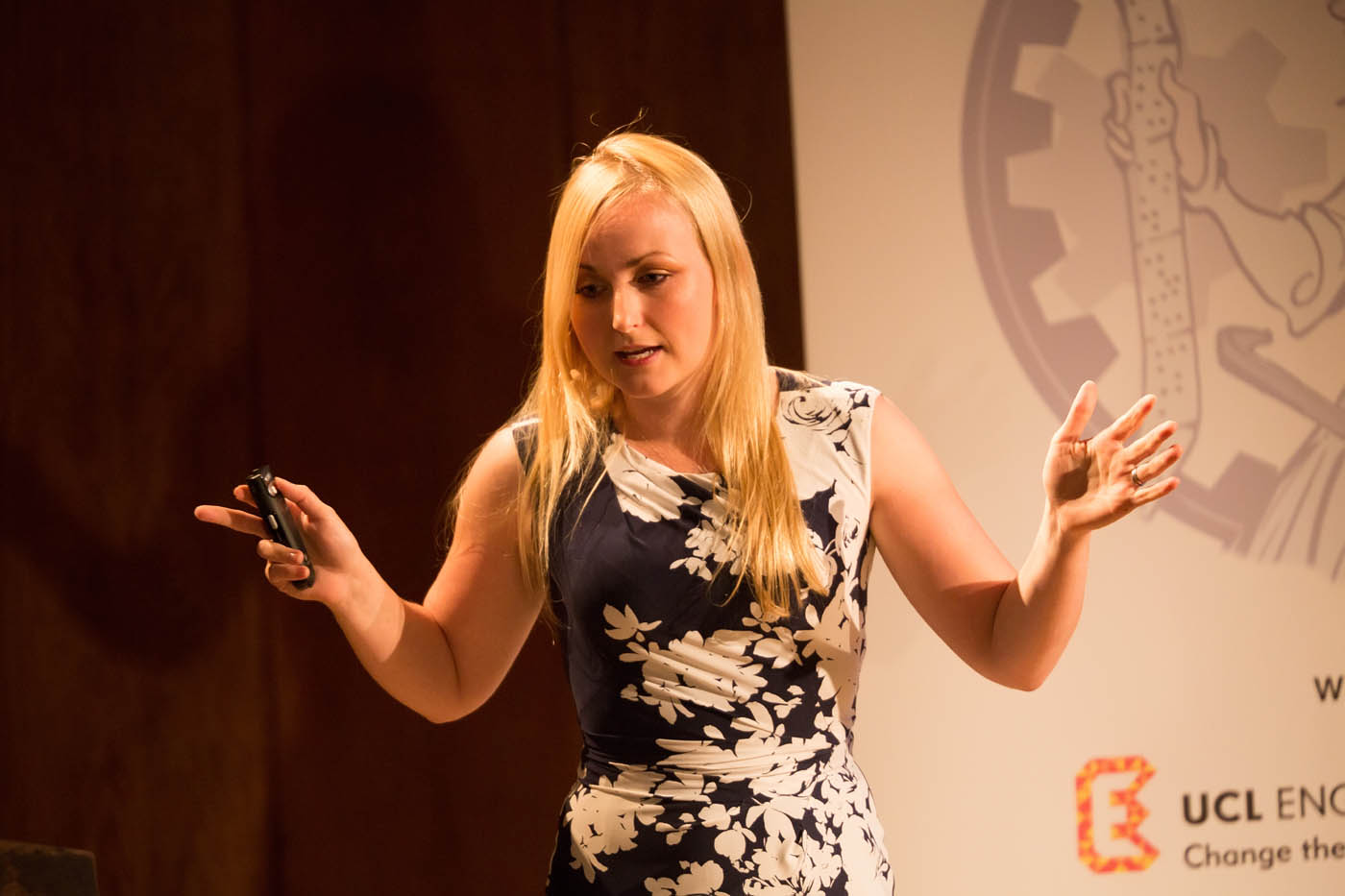
Abigail Hutty
ALD Live! photos by Paul Clarke.
Contact Information
Suw Charman-Anderson
Founder, Ada Lovelace Day
Email: suw@findingada.com
Twitter: @findingada